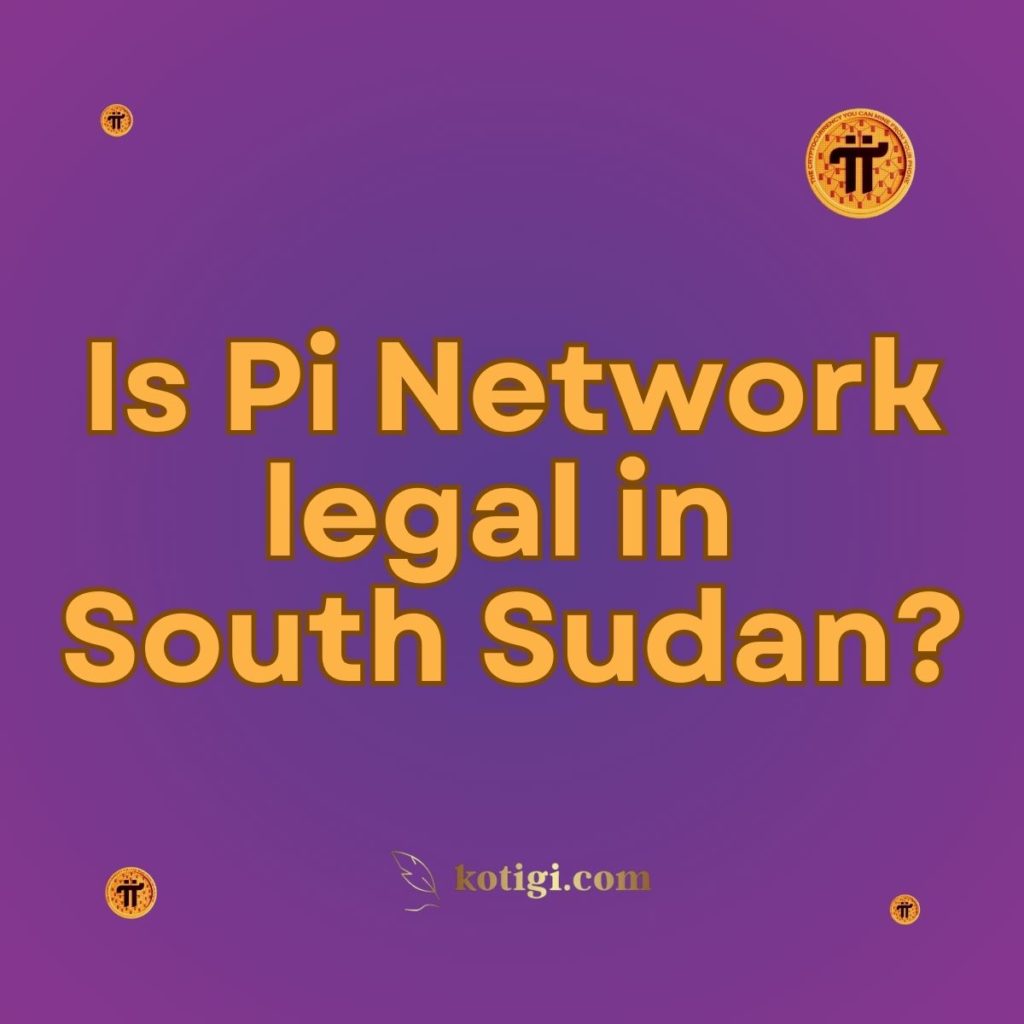
Is Pi Network legal in South Sudan?
Yes, Pi Network is currently legal in South Sudan, but the country does not have specific regulations governing cryptocurrencies or digital assets. The legal status of cryptocurrencies like Pi Network in South Sudan is shaped by a lack of clear regulatory frameworks and limited oversight by financial authorities. Here is an overview of Pi Network’s regulatory environment in South Sudan:
1. Regulatory Status in South Sudan
South Sudan does not have specific laws or regulations that directly address cryptocurrencies or digital assets like Pi Network. Cryptocurrencies are neither recognized as legal tender nor explicitly banned, which creates a grey area regarding their use and legal standing. In this context, Pi Network operates in a largely unregulated environment, allowing individuals to use and trade digital assets informally.
The country’s financial regulatory body, the Bank of South Sudan, has not issued any formal guidelines or statements regarding the use of cryptocurrencies. As a result, there is no formal oversight or legal protection for users engaging in cryptocurrency activities in South Sudan.
2. Potential Oversight by Financial Authorities
While the Bank of South Sudan and other financial institutions have not taken a definitive stance on cryptocurrencies, any future developments that involve the exchange or trading of digital assets, such as Pi tokens, could attract scrutiny. If Pi Network introduces features involving financial transactions or if its tokens are traded on exchanges, it might face regulatory attention as the government develops clearer guidelines on digital assets.
Given the current lack of regulation, there is no requirement for registration or compliance with specific financial regulations. However, if South Sudan’s authorities decide to regulate the crypto space in the future, Pi Network and similar projects would need to comply with any new rules.
3. Anti-Money Laundering (AML) and Financial Crime Concerns
South Sudan faces significant challenges related to money laundering and financial crime due to its fragile economy and limited regulatory capacity. Although there are no specific AML or Counter-Terrorism Financing (CTF) laws targeting cryptocurrencies, any future regulation of digital assets would likely include stringent AML and KYC (Know Your Customer) requirements.
If Pi Network introduces financial features or transactions, it would need to consider potential compliance with future AML and CTF regulations, which could include verifying user identities and reporting suspicious activities to relevant authorities.
4. Consumer Protection and Public Awareness
Due to the absence of a clear regulatory framework, consumer protection in the cryptocurrency space in South Sudan is limited. Users should be cautious and informed about the risks of using unregulated digital assets like Pi Network, particularly in a market with no legal protections against fraud or scams.
It is essential for Pi Network to provide transparent information to its users in South Sudan regarding the potential risks of using the platform, especially given the lack of oversight and regulatory clarity.
5. Potential for Future Regulatory Developments
South Sudan’s regulatory landscape for cryptocurrencies is undeveloped, but there is potential for future regulatory changes. As digital assets gain more global attention, South Sudanese authorities may consider establishing guidelines or regulations to manage their use more effectively and prevent financial crimes. If such regulations are introduced, Pi Network must be prepared to comply with new legal standards to continue operating legally in the country.
Conclusion
Pi Network is currently legal in South Sudan, but its regulatory status is unclear due to the absence of specific laws or regulations governing cryptocurrencies. While South Sudanese users can participate in Pi Network informally, they should be aware of the potential risks associated with the lack of regulatory clarity. As the legal environment for digital assets evolves, Pi Network must monitor regulatory developments and ensure compliance with any new rules. Users should stay informed and exercise caution to minimize potential risks in this largely unregulated market.




